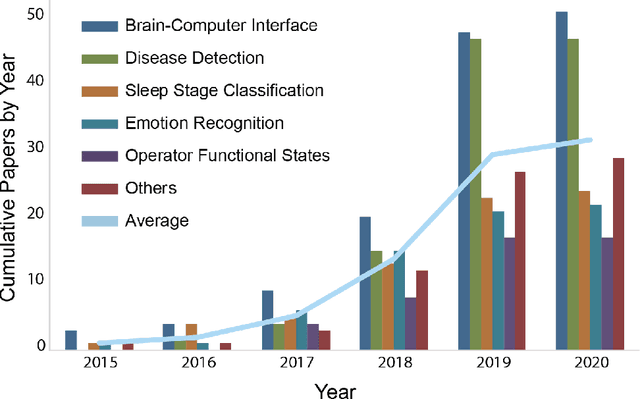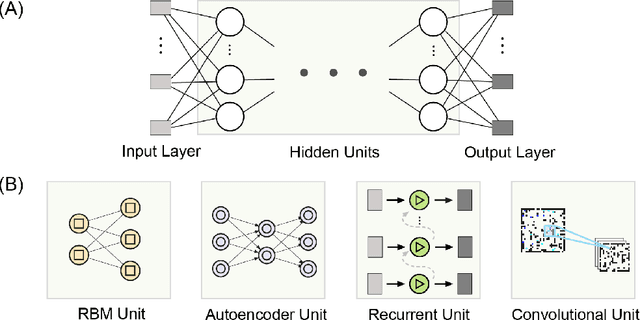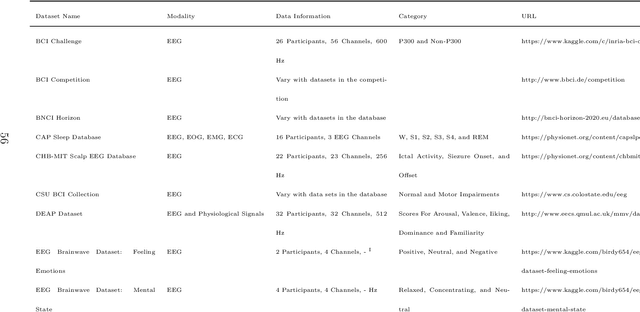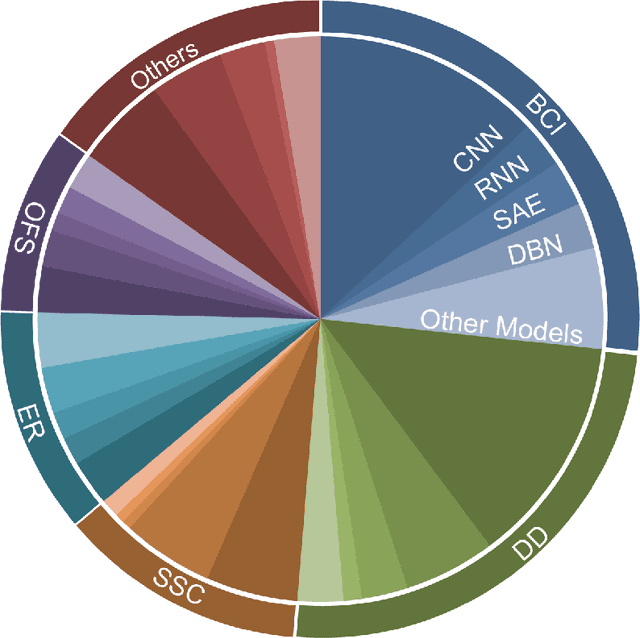Shu Gong
Deep Learning in EEG: Advance of the Last Ten-Year Critical Period
Nov 22, 2020



Abstract:Deep learning has achieved excellent performance in a wide range of domains, especially in speech recognition and computer vision. Relatively less work has been done for EEG, but there is still significant progress attained in the last decade. Due to the lack of a comprehensive survey for deep learning in EEG, we attempt to summarize recent progress to provide an overview, as well as perspectives for future developments. We first briefly mention the artifacts removal for EEG signal and then introduce deep learning models that have been utilized in EEG processing and classification. Subsequently, the applications of deep learning in EEG are reviewed by categorizing them into groups such as brain-computer interface, disease detection, and emotion recognition. They are followed by the discussion, in which the pros and cons of deep learning are presented and future directions and challenges for deep learning in EEG are proposed. We hope that this paper could serve as a summary of past work for deep learning in EEG and the beginning of further developments and achievements of EEG studies based on deep learning.
 Add to Chrome
Add to Chrome Add to Firefox
Add to Firefox Add to Edge
Add to Edge